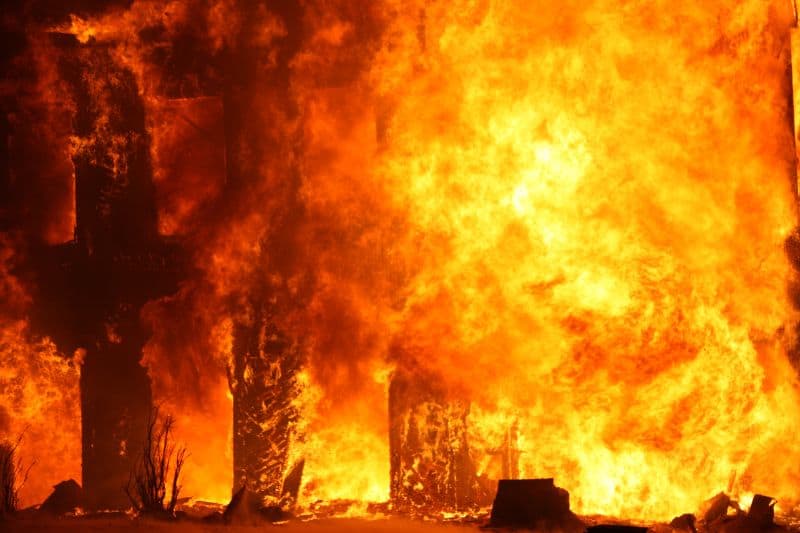Wildfires or bushfires are blazes that are uncontrolled and fueled by different types of weather, dry underbrush, and wind, which burn land by the acres and take over everything in their paths, in just a few minutes.
There are typically about 100,000 wildfires in the United States every year. An average of 72,400 wildfires cleared an average of 7 million acres of U.S. land each year since 2000.
Climate warming from increasing greenhouse gas emissions is forecast to dramatically increase the risk of very large, damaging wildfires over the next several decades, a new NOAA-funded study says. Here is an interesting piece of article that says that the risk of large U.S. wildfires is predicted by mid-century.
According to Wikipedia,
“A wildfire, wildland fire or rural fire is an uncontrolled fire in an area of combustible vegetation occurring in rural areas. Depending on the type of vegetation present, a wildfire can also be classified more specifically as a brush fire, bushfire (in Australia), desert fire, forest fire, grass fire, hill fire, peat fire, vegetation fire, or veld fire”
It is known that wildfires behave unpredictably – this is fundamental – but it is my experience that humans in the presence of wildfire are also likely to behave in aberrant and unpredictable ways.
~ Michael Leunig
In this article, you will learn about the causes, effects, and solutions to these wildfires and what can be done about them.
Various Causes of Wildfires
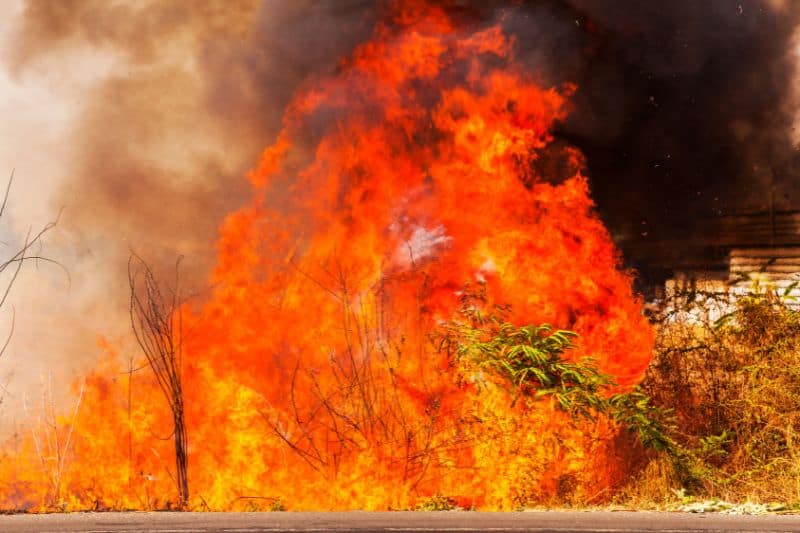
We can’t attribute wildfires to single or two uses. Some of the common causes of wildfires include:
1. Human Beings
Human beings are the number one cause of wildfires in the United States. Many of these wildfires are caused by cigarette butts being left on the land, campfires that have been left unmonitored, as well as intentional acts of arson. Statistically, 90% of the wildfires in the U.S. are caused by people.
Below are a few of the man-made causes of wildfires.
Burning Debris
It is pretty common to burn yard waste in many places. While it is legal to do so, it may cause fires in many places when things go out of hand. Winds play a major role in wildfires. They can cause flames of burning debris to spread into forests farms, or fields.
Unattended Campfires
Camping can be great fun for both young and old age people. Unattended campfires can put things out of control and can cause wildfires. It is therefore recommended to choose a safe location for a campfire that is away from ignitable objects and is stocked with a bucket of water and a shovel.
Equipment Failure or Engine Sparks
A running engine can spew hot sparks when things go wrong. Car crashes have been known to start fires quickly, and that is why it is common to see firefighters rush to the scene in anticipation of a fire. Small engine sparks can give way to high flames if that vehicle operates in a field or a forest.
Cigarettes
Cigarettes are another common cause of wildfires. It is common for people to throw their cigarette butt on the ground, knowing that it is still burning. Smokers must understand that small negligence on their part can have a huge impact on the environment and surrounding areas.
Fireworks
Fireworks are fun to shoot off, but special care needs to be taken when they are in the hands of amateurs. Fireworks must be avoided even when there is a small chance that they could start a wildfire. If not handled properly they may end up as flames in unwanted territory.
Arson
Arson is the act of setting fire to property, vehicles, or any other thing with the intention to cause damage. A person who commits this crime is called an arsonist. Arson is sometimes done by people to their own property to receive compensation. Arson may account for 30% of all wildfire cases.
2. Mother Nature
Mother nature is responsible for 10% of wildfires in the United States. Wondering how these fires begin? Here are some of the ways:
Lightning
Lightning can cause wildfires, especially the type of lightning called “hot lightning”, which can last for a relatively long time. When it strikes, it can produce a spark that can set off a forest or a field.
Volcanic Eruption
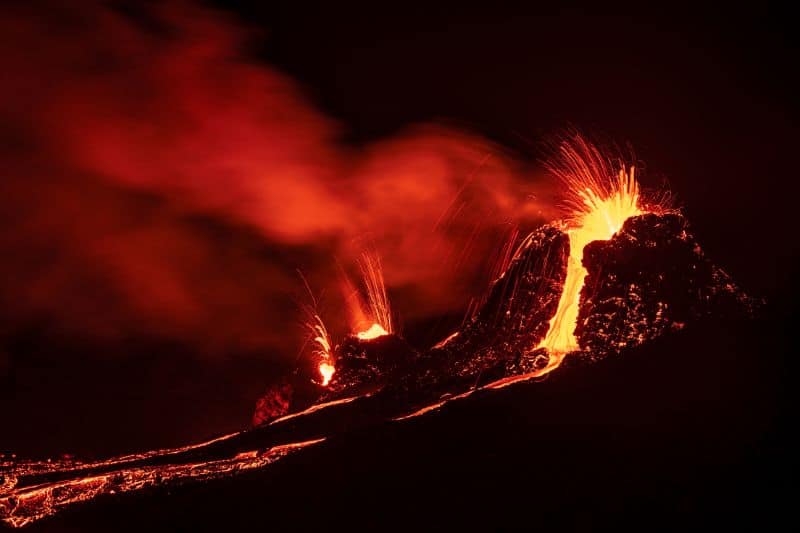
Hot burning lava from volcanic eruptions also causes wildfires. The temperature of molten lava can range between 700 to 1,200 °C (1,300 to 2,200 °F), which is already enough to start a fire.
Devastating Effects of Wildfires
Of course, wildfires are never harmless. Here are some of the devastating effects they can cause:
1. Wildfires Take Away Homes, Wildlife, As Well As Vegetation
Forests are home to more than 80% of all terrestrial animals, plants, and insects. When a wildfire begins, a percentage of these inhabitants remain homeless. In some cases, people often lose their houses, especially if the fires are close enough to human housing.
Sometimes, wildfires can spread on the nearby vegetation and crops, causing a lot of loss to the farmers. And, of course, that’s without forgetting that millions of dollars are spent repairing these damages and re-building homes and areas of vegetation.
2. The Soil in The Area of The Wildfire Has Been Completely Destroyed
The soils in the forest are made with decaying nutrients and debris that have a lot of natural ingredients that help make the earth what it is. When a wildfire hits this soil, it becomes too hot, and all of those nutrients are gone for good.
3. Animals Lose Their Lives
It is a sad but true fact that birds, squirrels, rabbits, and other wildlife animals lose their lives when wildfires break. These fires spread rapidly with the help of wind, making it hard for some creatures to escape. Sometimes the outbreak happens at the wee hours of the night when some of these creatures are asleep in their habitats.
4. Wild Fires Destroys Trees and Plants
Trees and plants help to produce oxygen in the world. The fewer trees and plants there are, the less clean air we have to breathe. With no plants or trees, it becomes difficult for animals that depend on them for food to survive.
5. Too Much Water in The Soil Can Cause Erosion
Firefighters use a great deal of water to put out these vicious wildfires. And while water and soil are a common combination, the problem is that too much of this water in the soil causes it to erode and make it useless.
6. Wildfires Produce Smoke

You can never separate wildfires from smoke. These fires produce large amounts of smoke in the air. That makes it not only difficult to breathe but also causes air pollution and, to some extent, respiratory issues to the affected.
7. Wildfires Cause Human Deaths
Perhaps you haven’t thought about it, but the fact remains that some human lives are also lost in wildfires. Typically, people fighting the fire lose their lives trying to save others.
8. Ash and Smoke Can Cause Serious Health Problems
We’ve already talked about smoke. But do you know that ash can also cause serious health issues to humans? That’s right. Humans who suffer from allergies and other medical problems can pick up issues from smoke and ash. In fact, this same smoke and ash have the ability to permanently damage the lungs and the throat.
9. Wildfires Lead to Loss of Jobs
Incomes and jobs are lost for workers in the agricultural fields whose field crops and animals were destroyed by the wildfire. When people are out of work, the economy suffers, making it difficult to recover.
10. Wildfires Make Insurance Policies Even More Expensive
It may look less convincing, but insurance premiums soar sky-high after a wildfire because now everyone is looking to obtain some kind of insurance to prevent such devastating losses. People are unable to afford these premiums even when they need them the most.
11. Wildfires Bring Restrictions
There will be restricted recreational areas that cannot be accessed until the area is clear of debris and is deemed safe to inhabit or visit. It may not be one of the top impacts of wildfires, but it’s still something worth noting.
12. Wildfires Exacerbate Species Extinction
The loss of animals has the ability to also create extinction for certain animals and other creatures of the forest.
Surprising Solutions to Wildfires
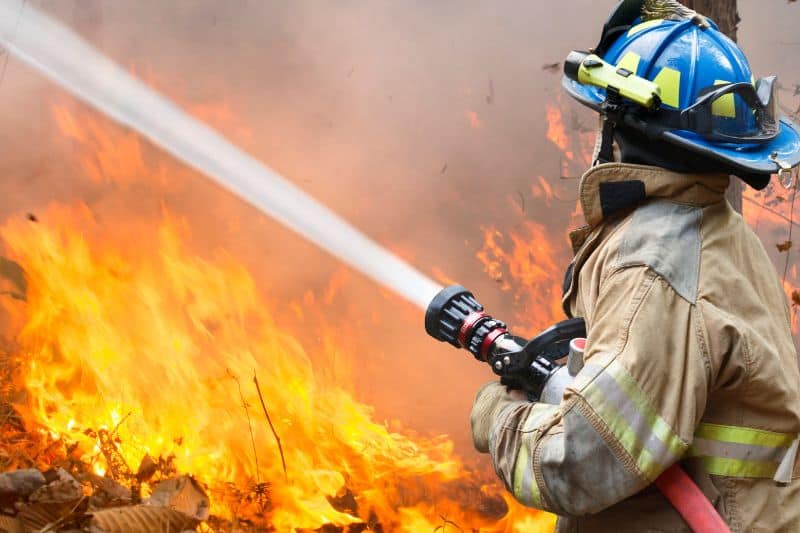
Despite all the effects of wildfires highlighted, there are a few ways we can address the rising concern of these fires. Let’s look at some of these ways:
1. Stick to local Regulations and Laws
Ensure you follow all of the local regulations and laws regarding burning fires during various times of day, year, and what materials and substances are permitted to be burned. If you do not see a sign with the rules, find a park ranger or someone close by and keep a list of the rules and regulations on hand.
2. Keep Up To Date With The Weather Forecast
So you are sure not to burn any substances while there are high winds or other treacherous conditions. Certain areas are more prone to wildfires than others, so make sure that you check with the area to see if they are more at risk than other areas.
The Wildland Fire Assessment System will give you an updated map of which areas are more at risk. Weather is one of the biggest reasons why wildfires occur. Always keep in mind the weather before you ever even plan your trip.
3. Only Light Fires in Areas that Are Easily Controlled Locations
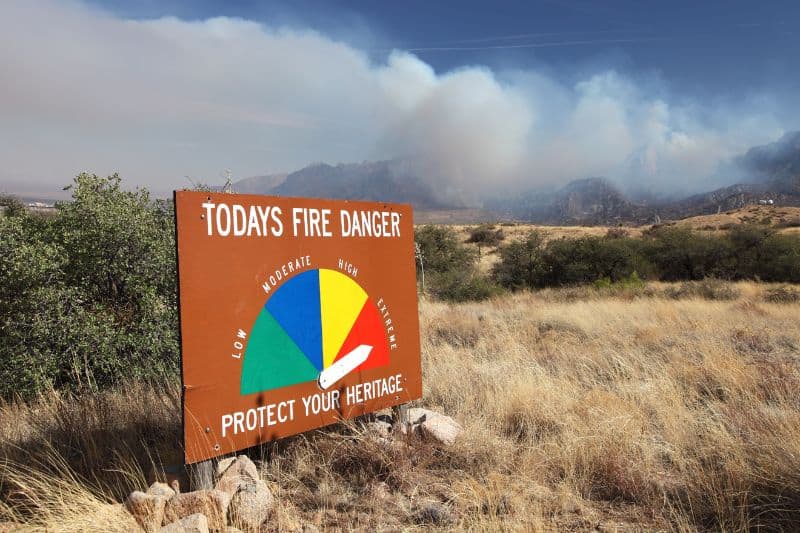
Make sure when you are creating fire pits or other fires that you are doing so in areas that are controlled, and fires cannot spread into other areas. A fire will need to be contained so that it will be easy to put out, especially if a dangerous situation arises.
4. Do Not Burn Any Materials that Are Combustible or Unusual in Nature
Do not throw garbage onto campfires or any other materials that should not be burned. You should only be using materials that are organic, such as leaves, wood, or yard waste. If you put unusual materials into a fire, it will only make the fire spread rapidly, which causes more problems for the area you are in.
5. Make Use of Smoking Zones
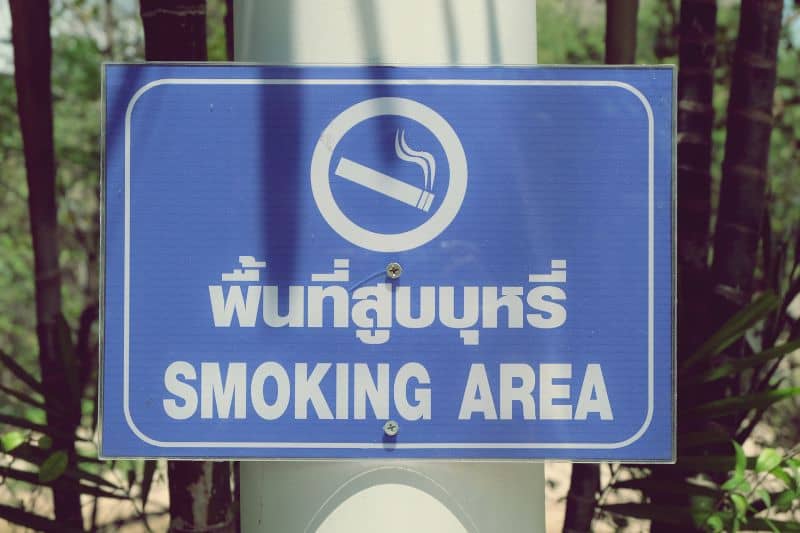
If you are a cigarette smoker, it is important not to smoke cigarettes where you are not supposed to. Instead, make use of areas designated for that purpose. If there’s no smoking zone nearby and you must smoke, make sure that you put your cigarette out completely before disposing of it.
Under no circumstances should you throw cigarettes onto the ground. Make sure they are completely put out and dispose of them properly. Most camping and picnic areas do not allow smoking, so if you are going to smoke, you need to know the rules beforehand.
6. Teach Your Children the Rules and Safety Precautions of Camping and Being Outdoors.
Ensure your kids know that they should avoid fires and always allow an adult to start and put out fires. Many wildfires are caused by unattended children near fires, and so teaching them the ways of nature could make all of the difference.
Wildfires are an unfortunate occurrence, but they can be prevented. Learn the rules of the area you are camping in and ensure you are following them explicitly. Wildfires are extremely dangerous and cause quite a bit of danger to our land and the habitat of many creatures.
Following the rules could save the lives and homes of many people and blessed creatures that are on this earth. Humans are the number one cause of wildfires and can be the number one solution as well. Be the solution and know the rules.
References:
